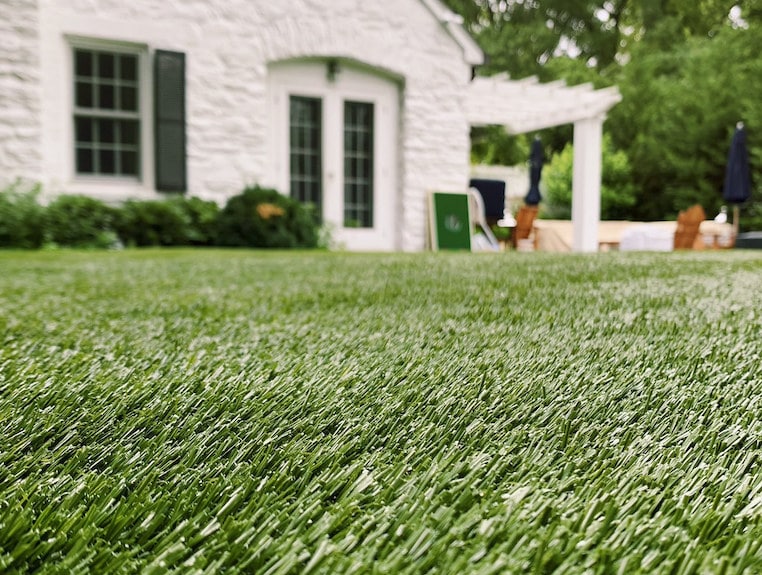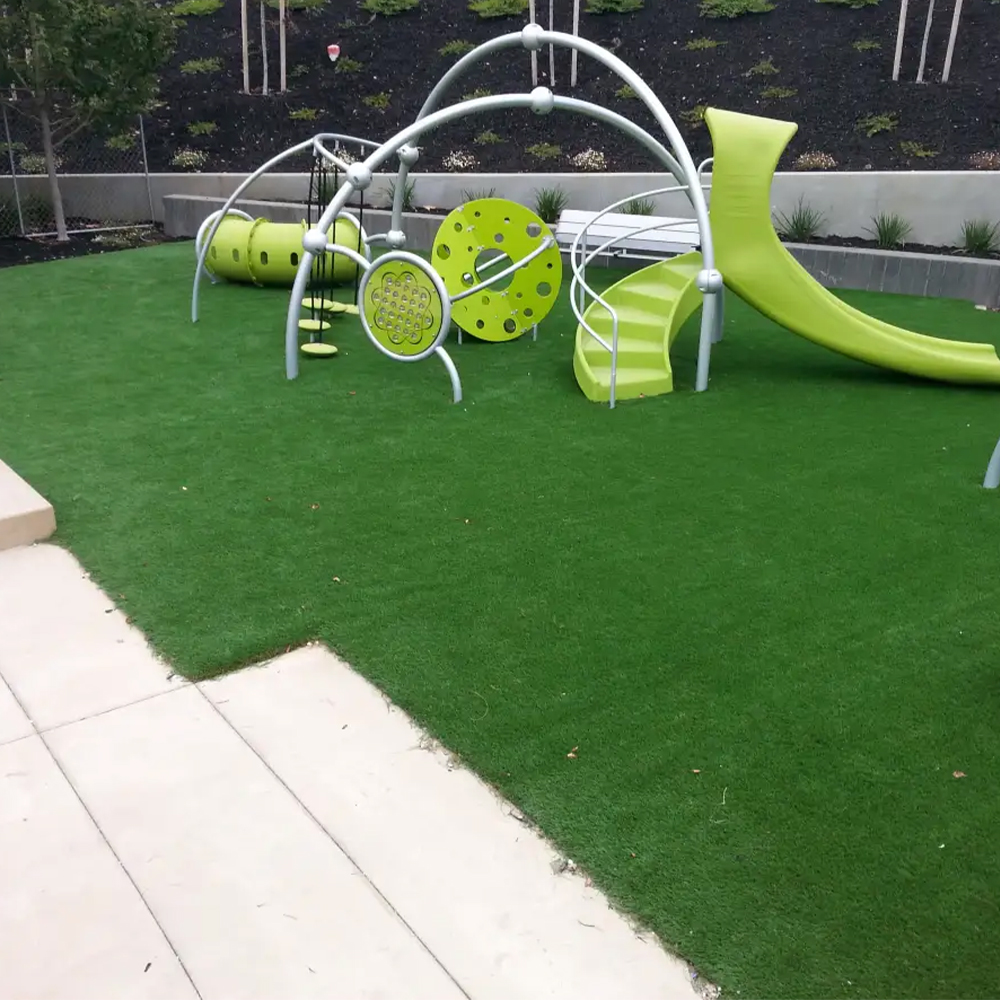Discover the Best Artificial Turf Companies Phoenix for Your Home or Business
Discover the Best Artificial Turf Companies Phoenix for Your Home or Business
Blog Article
Look Into the Environmental Advantages of Opting for Synthetic Grass Solutions
The fostering of synthetic turf remedies provides an engaging opportunity to resolve pushing environmental obstacles. By considerably reducing water usage and minimizing the application of harmful chemicals, these options not only advertise lasting landscape design yet likewise shield local ecosystems. The lower carbon footprint linked with lowered upkeep activities adds to a more sustainable method to land monitoring. The ramifications of these advantages prolong beyond mere preservation initiatives, elevating concerns regarding their long-lasting impact on habitat preservation and total eco-friendly equilibrium. Exploring these dimensions reveals a complex interplay worth considering.
Water Conservation Perks
One of one of the most significant benefits of synthetic grass is its capacity to preserve water. Standard turf yards call for significant irrigation, especially in areas prone to drought or water limitations. On the other hand, artificial grass does not need watering, dramatically decreasing the total need for water resources. This attribute is specifically useful in deserts where water scarcity is a pressing worry.
By removing the requirement for normal watering, synthetic grass adds to lasting landscape practices and aids mitigate the environmental effect of excessive water intake. Additionally, the conservation of water encompasses the reduction of drainage, which can cause soil disintegration and river air pollution.
In addition, the installation of fabricated grass allows house owners and districts to allot water sources a lot more effectively, concentrating on crucial usages such as drinking water and agriculture. The change towards synthetic grass not just advertises accountable water usage yet likewise straightens with wider ecological objectives intended at protecting natural deposits.
As areas increasingly prioritize sustainability, the water conservation benefits of artificial turf offer an engaging situation for its adoption in residential and industrial landscaping projects.
Lowered Chemical Use
The change to synthetic grass considerably reduces the dependence on chemical treatments frequently utilized in all-natural yard upkeep. Standard lawn management typically involves the application of herbicides, pesticides, and fertilizers to promote growth and control insects. These chemicals can posture threats to human health, regional wildlife, and the setting, adding to dirt and water contamination.
In comparison, fabricated lawn eliminates the requirement for these harmful substances. By minimizing the release of artificial compounds right into the community, artificial turf advertises much healthier soil and water systems.
In addition, the absence of chemical drainage connected with synthetic turf installations assists secure neighborhood rivers from air pollution, supporting marine life and maintaining biodiversity. Artificial turf companies phoenix. As areas progressively prioritize sustainable practices, selecting fabricated grass presents a feasible option that straightens with environmental preservation goals. Via this shift, home owners can delight in lush eco-friendly areas without endangering ecological health, leading the way for a much more sustainable future
Reduced Carbon Impact

Moreover, the installment of man-made lawn can cause significant water preservation. Natural grass call for significant amounts of water for irrigation, which not only includes in the carbon footprint connected with water extraction and treatment however likewise pressures neighborhood water sources. On the other hand, synthetic lawn needs marginal upkeep, requiring no watering, therefore considerably minimizing water use and its connected power expenses.
Additionally, the durability of synthetic grass adds to its reduced carbon influence. With a life expectancy of approximately 15 years or even more, the requirement for constant substitutes is decreased, causing less waste and reduced energy usage in production and taking care of conventional turf choices. On the whole, synthetic grass presents a her comment is here lasting choice for eco mindful landscaping.
Habitat Preservation
Habitat conservation is a crucial factor to consider in the debate over landscaping selections, specifically when contrasting man-made grass to all-natural turf. All-natural grass lawns often call for substantial maintenance, including the usage of chemicals, plant foods, and herbicides, which can detrimentally impact neighborhood environments. These chemicals can leach right into the soil and waterways, damaging native vegetation and animals and interrupting regional habitats.
Synthetic grass removes the requirement for hazardous chemicals, consequently securing close-by wild animals and maintaining the integrity of bordering environments. The setup of man-made grass can lead to the conversion of previous lawn areas into more biodiverse landscapes, such as pollinator yards or indigenous plant locations, which can support local wildlife.
Eventually, the shift to synthetic turf not only saves water and decreases maintenance initiatives however likewise cultivates an extra unified partnership between human activities and the native environment, advertising habitat preservation in the process.
Long-Term Sustainability
Long-term sustainability is an important consider reviewing the benefits of synthetic grass over typical turf lawns. Continue Among one of the most significant benefits of synthetic lawn is its sturdiness; it can last as much as 15-20 years with minimal upkeep, whereas natural grass needs frequent reseeding and replacement. This longevity minimizes the requirement for consistent resources, such as water, fertilizers, and pesticides, which are crucial for maintaining a healthy grass lawn.
Furthermore, synthetic grass adds to a decrease in carbon discharges connected with lawn care devices. Typical grass commonly need gas-powered mowers, trimmers, and blowers, every one of which add to air contamination. Turf installation phoenix az. In contrast, synthetic grass eliminates the need for such devices, promoting a cleaner setting
In addition, the manufacturing of fabricated lawn progressively uses recycled products, boosting its sustainability account. As makers take on environment-friendly practices, the ecological impact of artificial grass proceeds to diminish.

Conclusion
The fostering of fabricated grass services presents considerable ecological benefits, including substantial water conservation, minimized dependence on damaging chemicals, and a reduced carbon impact. Additionally, synthetic grass help in preserving natural habitats by reducing land disturbance and advertising lasting sustainability through making use of long lasting materials. Collectively, these factors underscore the capacity of synthetic grass to add positively to ecological health and wellness and offer a sensible option to standard landscaping techniques in a significantly resource-conscious globe.
In comparison, synthetic grass does not need watering, significantly minimizing the general need for water sources. By minimizing the visit this site right here release of artificial compounds right into the ecosystem, artificial turf promotes much healthier soil and water systems.
Furthermore, the installment of synthetic lawn can result in substantial water conservation. In contrast, man-made turf requires minimal upkeep, calling for no watering, consequently considerably lowering water use and its connected power prices.

Report this page